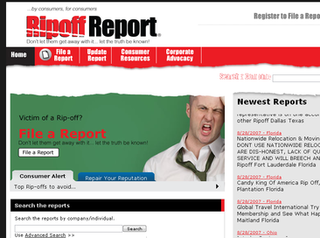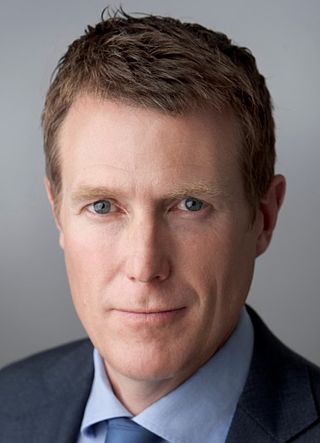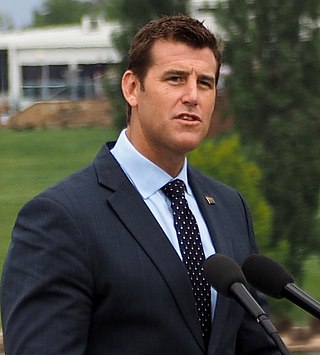
Defamation is a communication that injures a third party's reputation and causes a legally redressable injury. The precise legal definition of defamation varies from country to country. It is not necessarily restricted to making assertions that are falsifiable, and can extend to concepts that are more abstract than reputation – like dignity and honour. In the English-speaking world, the law of defamation traditionally distinguishes between libel and slander. It is treated as a civil wrong, as a criminal offence, or both.
Although Australia is considered to have, in general, both freedom of speech and a free and independent media, certain subject-matter is subject to various forms of government censorship. These include matters of national security, judicial non-publication or suppression orders, defamation law, the federal Racial Discrimination Act 1975 (Cth), film and literature classification, and advertising restrictions.
The system of tort law in Australia is broadly similar to that in other common law countries. However, some divergences in approach have occurred as its independent legal system has developed.
Stephen Paul Cannane is a news journalist and current affairs reporter for the Australian Broadcasting Corporation. He is the chief of the ABC's Europe bureau, based in London. Cannane had previously been the ABC's Europe correspondent, a reporter for the ABC's Investigations unit, a host of The Drum and a reporter at Lateline.

Antonios Sajih Mokbel is an Australian criminal who has been convicted of a number of offences, most prominently commercial drug trafficking. He has spent most of his life in Melbourne, Australia. Operation Purana alleged that he is the mastermind behind the Melbourne amphetamine trade. He has been linked to Carl Williams, and charged but not convicted of two murders in the Melbourne gangland war. He disappeared from Melbourne while on trial in March 2006, and was arrested by Greek police in Athens on 5 June 2007. Since being brought back to Australia he has remained incarcerated.

Ripoff Report is a privately owned and operated for-profit website founded by Ed Magedson. The Ripoff Report has been online since December 1998 and is operated by Xcentric Ventures, LLC which is based in Tempe, Arizona. In 2023 an Australian judge found the company purports to be a consumer review site but profits from extortive business practices.

Elizabeth Jean Carroll is an American journalist, author, and advice columnist. Her "Ask E. Jean" column appeared in Elle magazine from 1993 through 2019, becoming one of the longest-running advice columns in American publishing.
The origins of the United States' defamation laws pre-date the American Revolution; one influential case in 1734 involved John Peter Zenger and established precedent that "The Truth" is an absolute defense against charges of libel. Though the First Amendment of the U.S. Constitution was designed to protect freedom of the press, for most of the history of the United States, the U.S. Supreme Court failed to use it to rule on libel cases. This left libel laws, based upon the traditional "Common Law" of defamation inherited from the English legal system, mixed across the states. The 1964 case New York Times Co. v. Sullivan, however, radically changed the nature of libel law in the United States by establishing that public officials could win a suit for libel only when they could prove the media outlet in question knew either that the information was wholly and patently false or that it was published "with reckless disregard of whether it was false or not". Later Supreme Court cases barred strict liability for libel and forbade libel claims for statements that are so ridiculous as to be obviously facetious. Recent cases have added precedent on defamation law and the Internet.

Canadian defamation law refers to defamation law as it stands in both common law and civil law jurisdictions in Canada. As with most Commonwealth jurisdictions, Canada follows English law on defamation issues.

Charles Christian Porter is an Australian former politician and lawyer who served as the 37th Attorney-General of Australia from 2017 to 2021 in the Turnbull government and the subsequent Morrison government. He was a Member of Parliament (MP) for the Division of Pearce from 2013 to 2022 and a member of the Liberal Party of Australia. Porter also served as Leader of the House and Minister for Industrial Relations from 2019 to 2021, and Minister for Industry, Science and Technology in 2021 following his resignation as attorney-general.

Section 230 is a section of Title 47 of the United States Code that was enacted as part of the Communications Decency Act of 1996, which is Title V of the Telecommunications Act of 1996, and generally provides immunity for online computer services with respect to third-party content generated by its users. At its core, Section 230(c)(1) provides immunity from liability for providers and users of an "interactive computer service" who publish information provided by third-party users:
No provider or user of an interactive computer service shall be treated as the publisher or speaker of any information provided by another information content provider.
Life imprisonment is the most severe criminal sentence available to the courts in Australia. Most cases attracting the sentence are murder. It is also imposed, albeit rarely, for sexual assault, manufacturing and trafficking commercial quantities of illicit drugs, and offences against the justice system and government security.

Benjamin Roberts-Smith is an Australian former soldier. In 2023, a civil defamation trial initiated by Roberts-Smith in the Federal Court of Australia found that he committed war crimes in Afghanistan during 2009, 2010 and 2012. An appeal to a Full Court, comprising three judges, of the Federal Court was subsequently filed.
Corryn Veronica Ann Rayney, née Da Silva, migrated to Australia with her Indian family in 1973 as refugees from Idi Amin's Uganda. Her death occurred on or about 7 August 2007, her body being discovered a week later in a clandestine grave in Kings Park, Perth, with no clearly established cause of death. Her husband Lloyd Rayney, a prominent barrister specialising in criminal prosecution, was charged with her murder, but found not guilty after a trial before a judge only. The acquittal was unanimously upheld by a court of appeal in August 2013. The state's police commissioner and attorney general declined to acknowledge documented procedural mistakes, and refused to instigate a fresh search for the killers, leading to calls for a federal investigation into the matter.
Google has been involved in multiple lawsuits over issues such as privacy, advertising, intellectual property and various Google services such as Google Books and YouTube. The company's legal department expanded from one to nearly 100 lawyers in the first five years of business, and by 2014 had grown to around 400 lawyers. Google's Chief Legal Officer is Senior Vice President of Corporate Development David Drummond.
Lloyd Patrick Rayney is a former Western Australian barrister and Crown prosecutor who came to prominence when he was charged and acquitted in 2012 of the murder or manslaughter of his wife Corryn Rayney. In 2017, he succeeded in a defamation action against the State of Western Australia over police behaviour and was awarded a record sum of $A2.62 million. In a long-running action, the WA Legal Professional Complaints Committee and the State Administrative Tribunal had his practising certificate cancelled for "professional misconduct" and "knowingly giving false evidence".
Dylan Voller is an Aboriginal-Australian man who came to public attention after his detainment in a youth detention center in the Northern Territory was documented on a July 2016 episode of the ABC TV program Four Corners.
Aman Ravindra Singh is a Fijian politician of Indian descent. He is currently the Assistant Secretary of the Fiji Labour Party and an eminent human rights and constitutional lawyer in Fiji. The Fiji Labour Party National Council appointed Singh as their parliamentary leader in preparation for general elections to be taking place in 2019. The Party leader, Mahendra Chaudhary also announced that if Labour Party wins the general elections in 2019, Singh will become the Prime Minister.
Barilaro v Shanks-Markovina & Google was a defamation court case before the Federal Court of Australia in 2021 and 2022. The case revolved around claims that two videos published on the friendlyjordies YouTube channel brought the then Deputy Premier of New South Wales, John Barilaro, into public disrepute, odium, ridicule and contempt. Barilaro resigned his seat of Monaro citing this case being ongoing as a reason, causing a by-election in that seat. Barilaro originally filed the lawsuit against the first respondent, Jordan Shanks-Markovina, as the videos' author, and the second respondent, Google, as their publisher via its YouTube service. The case against Shanks-Markovina was settled in November 2021 with Shanks-Markovina apologising in court for allegedly offensive remarks made in the videos. The case against Google began on 21 March 2022, and concluded on the 24th. The judge found in favour of Barilaro on 6 June.
In Australia, defamation refers to the body of law that aims to protect individuals, groups, and entities from false or damaging statements that may cause harm to their reputation or standing in society. Australian defamation law is defined through a combination of common law and statutory law.








